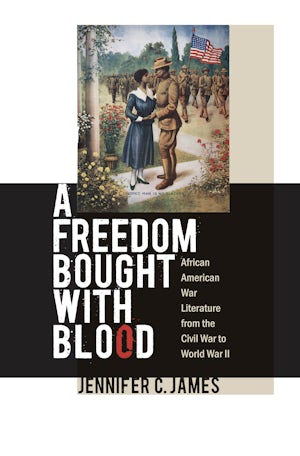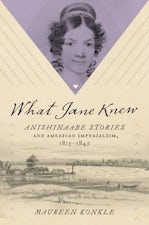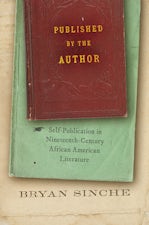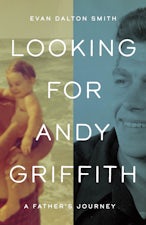A Freedom Bought with Blood
African American War Literature from the Civil War to World War II
By Jennifer C. James
336 pp., 6.125 x 9.25, 7 illus., notes, index
-
Paperback ISBN: 978-0-8078-5807-3
Published: September 2007 -
E-book PDF ISBN: 979-8-8908-7884-7
Published: September 2012 -
E-book EPUB ISBN: 978-1-4696-0667-5
Published: September 2012
Buy this Book
- Paperback $42.50
- E-Book $29.99
For Professors:
Free E-Exam Copies
Awards & distinctions
A 2008 Choice Outstanding Academic Title
In establishing African American war literature as a long-standing literary genre in its own right, James also considers the ways in which this writing, centered as it is on moments of national crisis, complicated debates about black identity and African Americans' claims to citizenship. In a provocative assessment, James argues that the very ambivalence over the use of violence as a political instrument defines African American war writing and creates a compelling, contradictory body of literature that defies easy summary.
About the Author
Jennifer C. James is associate professor of English and Africana studies at George Washington University.
For more information about Jennifer C. James, visit
the
Author
Page.
Reviews
"James walks us through a body of literature never previously gathered under a similar rubric. . . [She] map[s] out a genuinely new cognitive field that other scholars can now contest and hone."--Journal of American History
"[A] pioneering view of African American war literature. . . . Essential."--CHOICE
"That James has mastered the literature and history of the period is beyond question."--The Register of the Kentucky Historical Society
"A fascinating book. James's comparative study of a broad range of war literature by African American authors is sophisticated and consistently provocative. She grounds the theoretical scaffolding of her study with closely observed textual details."--James Smethurst, University of Massachusetts-Amherst, author of The Black Arts Movement: Literary Nationalism in the 1960s and 1970s
"James examines a topic that has been not only ignored, but also strangely avoided. By drawing on a range of textual genres from wartime America, she explores emerging formations of blackness that do not conform to the mainstream versions we have been taught to expect. The text is both easily accessible and cutting-edge in its scholarship and will be of interest to scholars in black Atlantic/African diaspora studies, African American studies, women's studies, sociology, queer studies, and literature."--Michelle Wright, University of Minnesota, author of Becoming Black: Creating Identity in the African Diaspora




